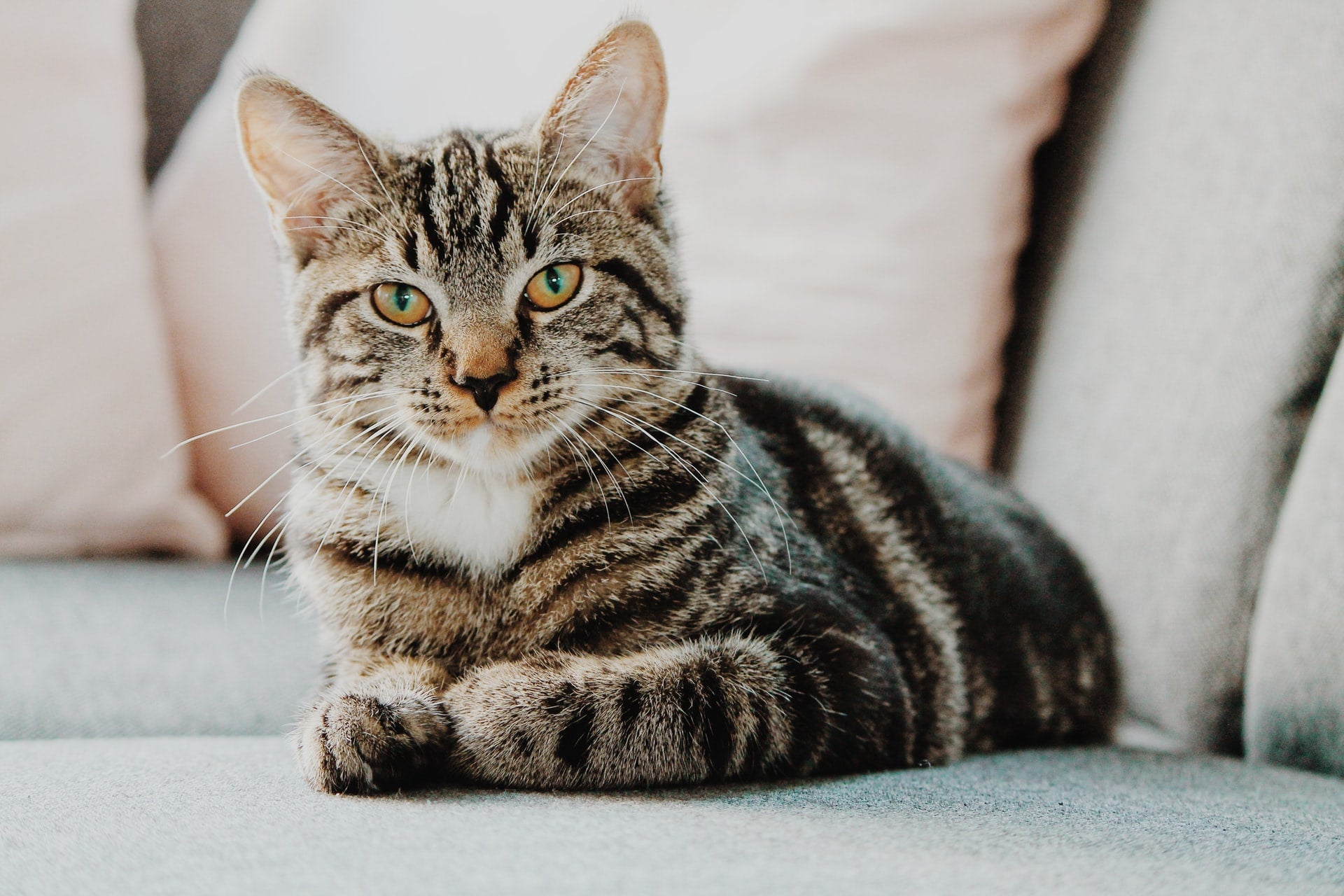While cats are relatively self-sufficient in many areas of their lives—grooming and portion control, for example—they still need your help in order to live their nine lives to the fullest.
Some cats can contract viruses that result in lingering, on-and-off respiratory issues. These kitty colds can vary in severity and are often triggered by stress or other illnesses.
Fortunately, L-Lysine has been used by pet owners for years as a way to offer long-term immune support to our feline friends. Keep reading to learn more!
What is L-Lysine?
L-Lysine is an essential amino acid, used as a nutritional supplement for humans, dogs, and cats alike. Because your kitty’s body doesn’t naturally produce sufficient amounts of L-Lysine to protect against certain illnesses and infections, she needs to get it from her diet.
L-Lysine stimulates an enzyme in the liver that breaks down arginine—an amino acid essential to some viruses. With less arginine, there’s less of that pesky cold-like virus; with less of that virus, your cat will experience fewer flare-ups.
That said, your kitty needs to consistently take L-Lysine supplements over a long period of time in order to truly reap the benefits. L-Lysine should be treated as a long-term dietary aid, rather than a short-term solution to certain health issues.
Does Your Cat Need L-Lysine Supplements?
L-Lysine is often recommended by vets for cats with respiratory issues. If your cat frequently experiences any of the following, she may benefit from an L-Lysine supplement:
- Sneezing
- Wheezing
- Nasal congestion
- Cold sores
- Fever
- Runny nose
- Watery eyes
- Red, puffy eyes
- Lethargy
While these kitty colds are common, that doesn’t mean they’re ideal. L-Lysine offers the necessary immune support to help ease those ailments. It helps your kitty’s body produces enzymes and antibodies that boost her immune, and also supports nutrient absorption to promote her overall health.

Signs of Immune Deficiency in Cats
A strong immune system helps your kitty fight off various illnesses. If your kitty gets sick, her immune system should allow her to bounce back pretty quickly.
Sometimes, though, that immune system doesn’t work as well as it should. As a result, your feline friend will have a harder time fighting off harmful germs and substances.
Some immune deficiencies are genetic or hereditary, while others are caused by factors such as poor nutrition, lack of proper hygiene, chronic stress, and various health issues.
Signs your cat may have an immune deficiency include:
- Recurring illnesses
- Respiratory issues
- Runny nose or eyes
- Stunted growth
- Weight changes
- Appetite loss
- Change in litter box habits
- Lethargy
- Poor coat quality
- Skin problems
You know your cat best. Anytime you notice any changes to her appearance or behavior, it’s a good idea to contact your vet to rule out any potentially serious health issues. (Plus, it’s a good chance to ask your vet about cat supplements that can offer everyday support.)
How to Give L-Lysine to Cats
If your vet recommends L-Lysine supplements for your cat, you’ll be able to find them in a variety of forms including:
- Chews
- Tablets
- Gels, pastes, and liquids
- Powders
You may also find L-Lysine listed as an ingredient in various cat foods and treats.
As any cat owner knows, our feline friends are notoriously picky, so it may take some trial and error to find the best way to give your cat her daily L-Lysine supplement. She may enjoy licking a gel or paste, chowing down on a soft chew, like PetHonesty's Dual-Texture Immune Support Lysine Chews for Cats, or eating her usual food with L-Lysine powder mixed in.
The appropriate amount of L-Lysine for cats is typically between 250-500 mg per day. Be sure to follow the guidelines listed on the product label, along with any recommendations given to you by your vet.
Never give your cat more than the recommended amount, as this could result in tummy troubles. Additionally, always be sure you’re not giving your cat any L-Lysine supplements formulated for humans or other animals. If you notice any negative effects, contact your vet as soon as possible.
For those who prefer L-Lysine supplements in powder form, try PetHonesty’s Lysine-Immune Health+ Powder for Cats. This tasty vet-recommended powder is recommended to promote a strong immune system, help with seasonal allergies, and support eye and respiratory health. Just scoop it into your kitty’s food every day and let her reap the immune-boosting benefits!
Please note: it may take several weeks of consistent use before you can see results. With vet approval, continue giving L-Lysine to your cat whether she’s sick or healthy—after all, it’s good for maintaining health and keeping certain conditions under control.
Sources:
https://www.greatpetcare.com/pet-medication/l-lysine-for-cats/
https://www.alphapaw.com/blog/the-benefits-of-lysine-for-cats
https://pettable.com/blog/what-are-the-uses-of-lysine-for-cats
https://www.entirelypets.com/cat-lysine.html













